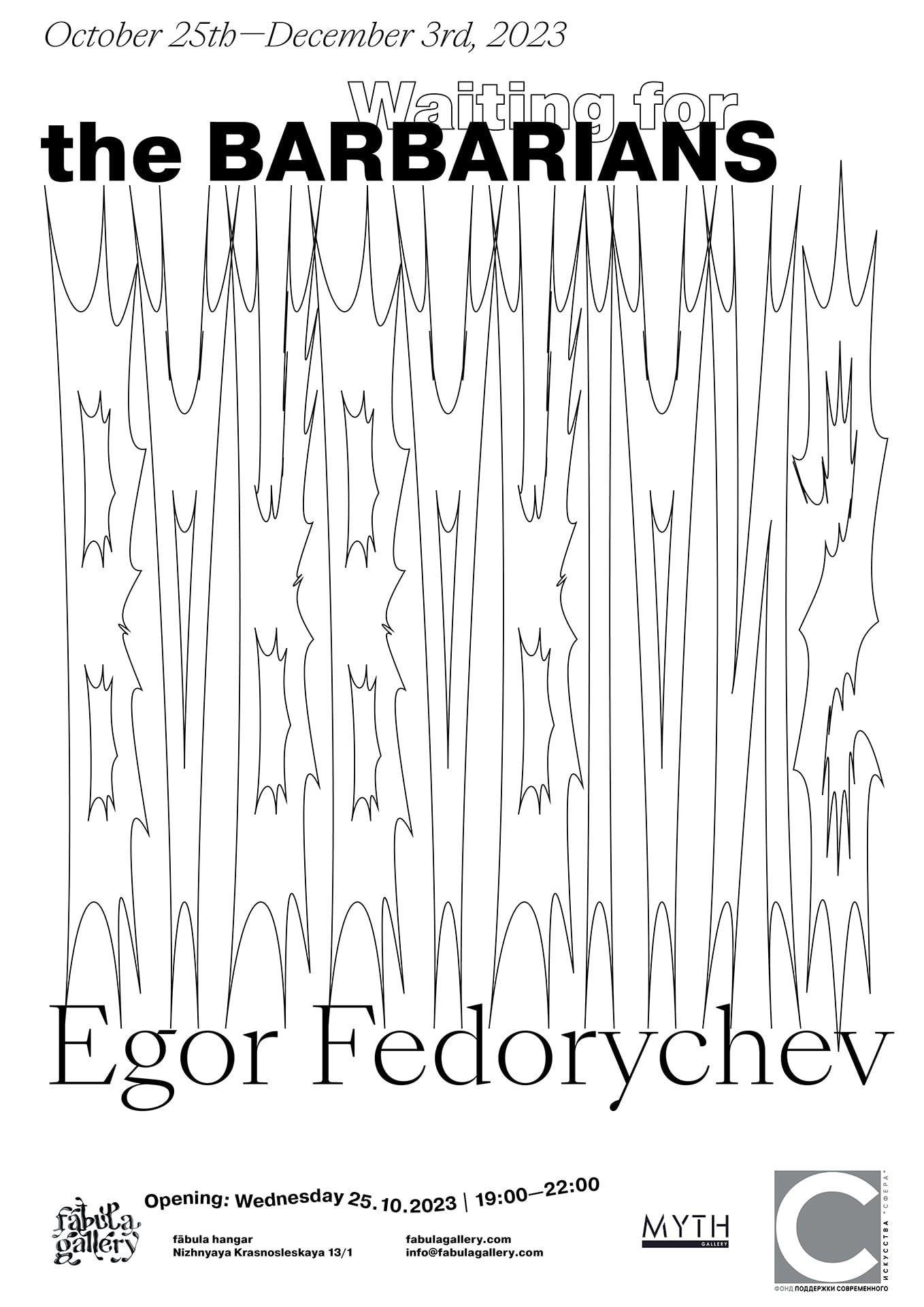Waiting For The Barbarians | Egor Fedorichev
26 Oct – 03 Dec 2023
Dates:
26 Oct – 03 Dec 2023
Artist:
Egor Fedorichev
Please book:
your visit here
Date:
October 31, 2023
Category:

